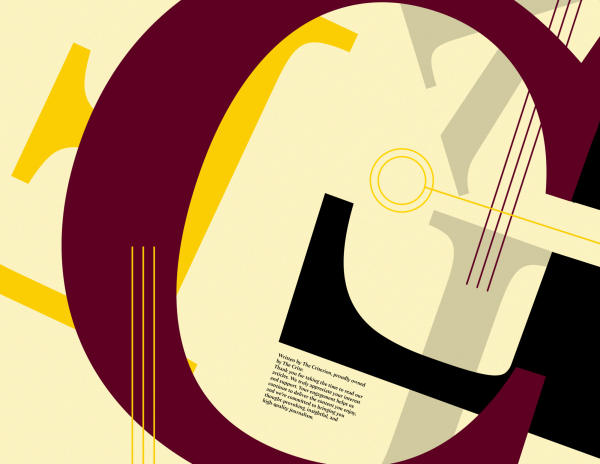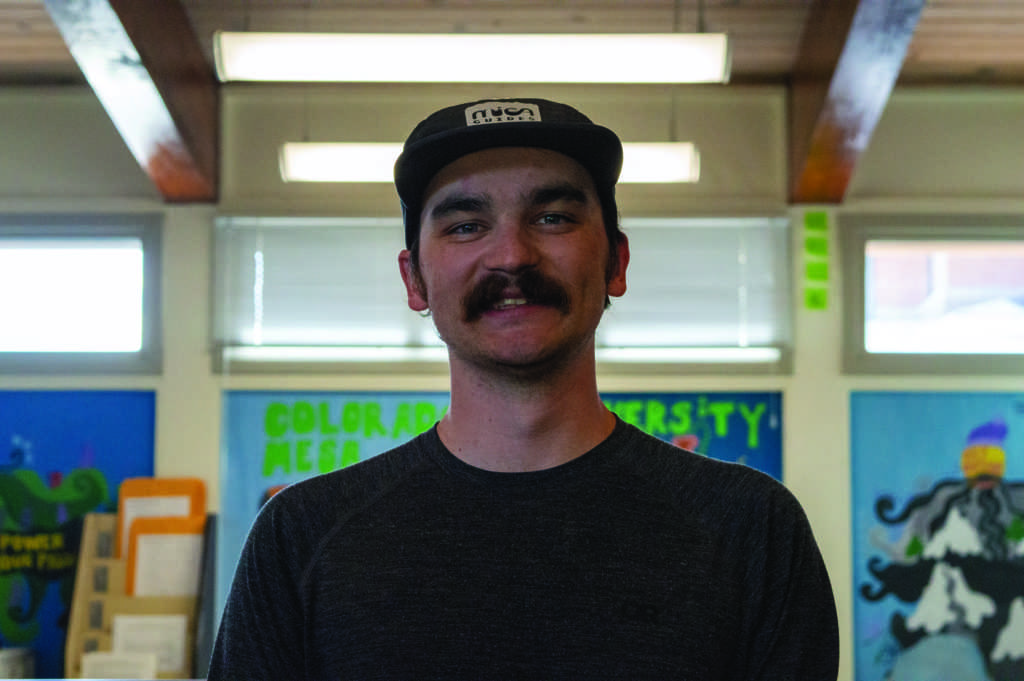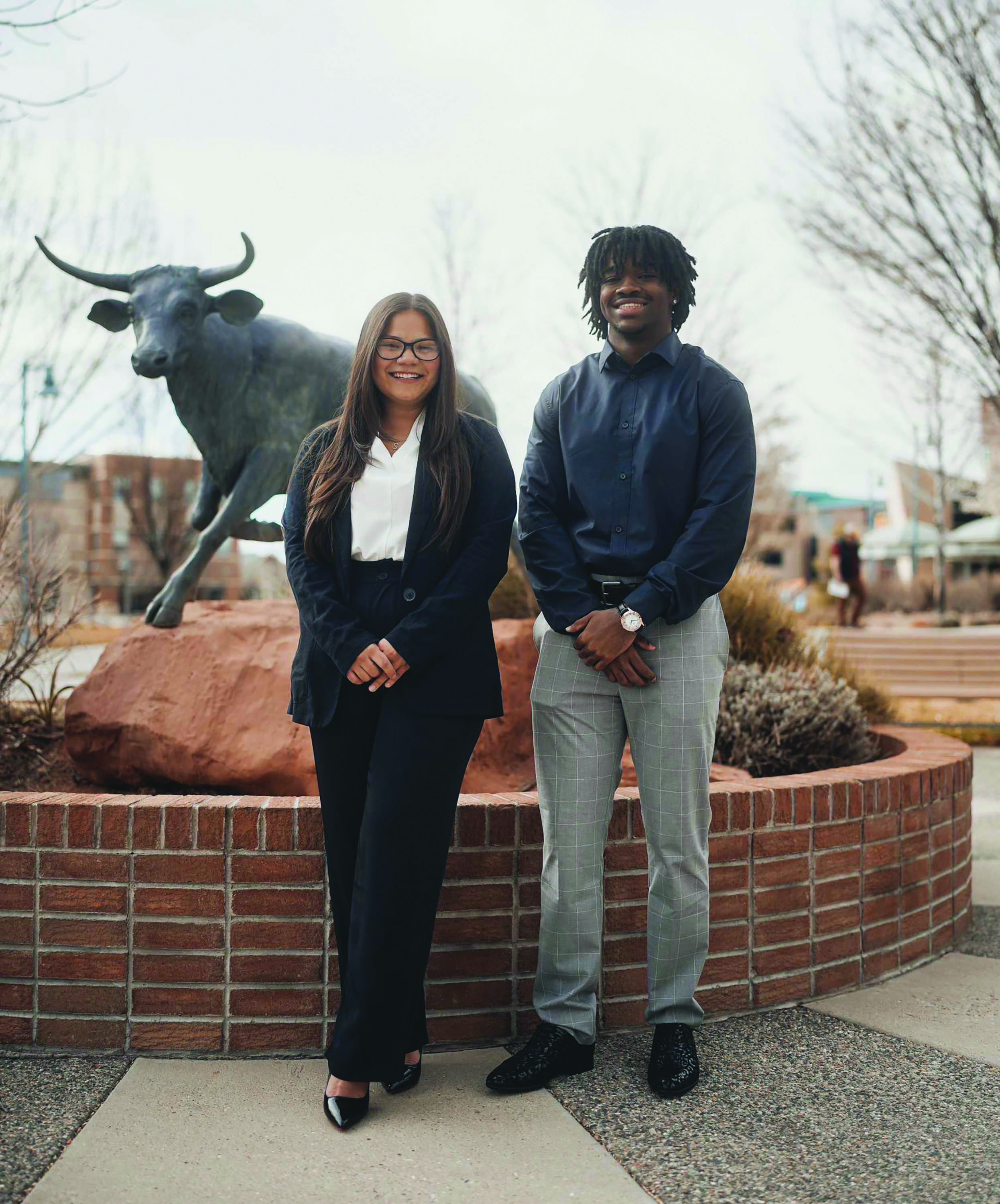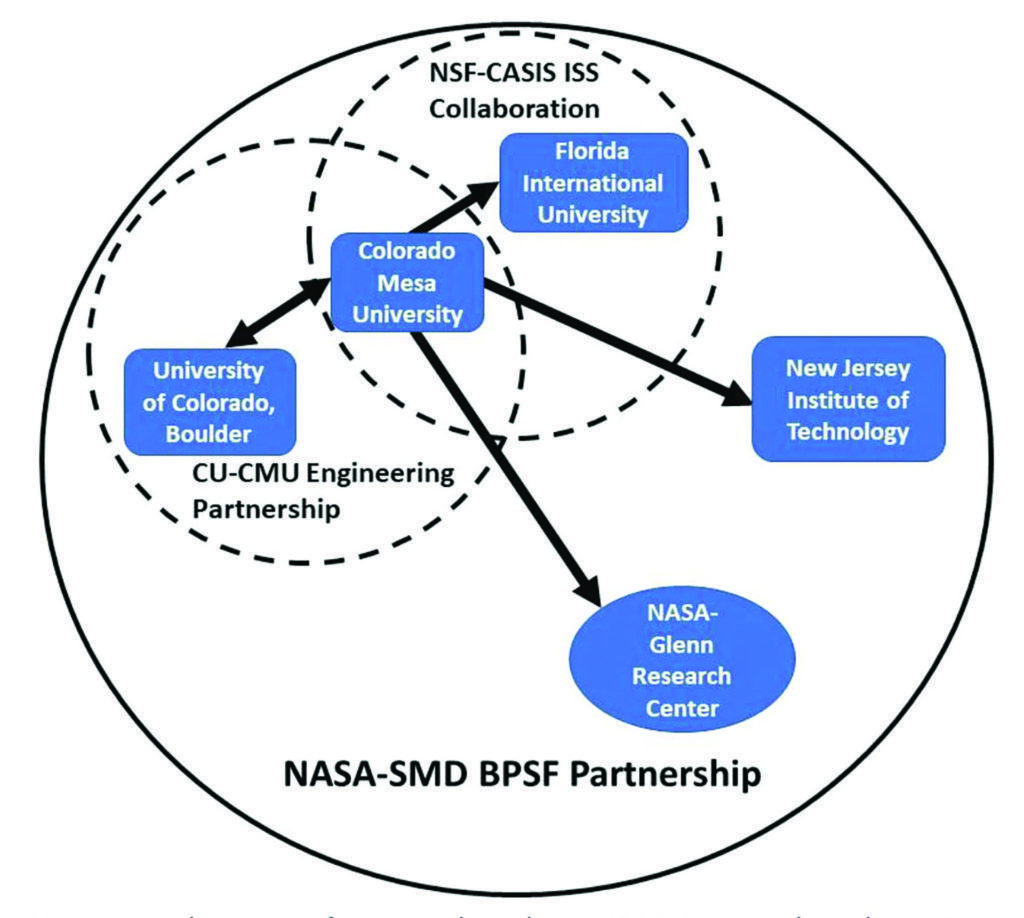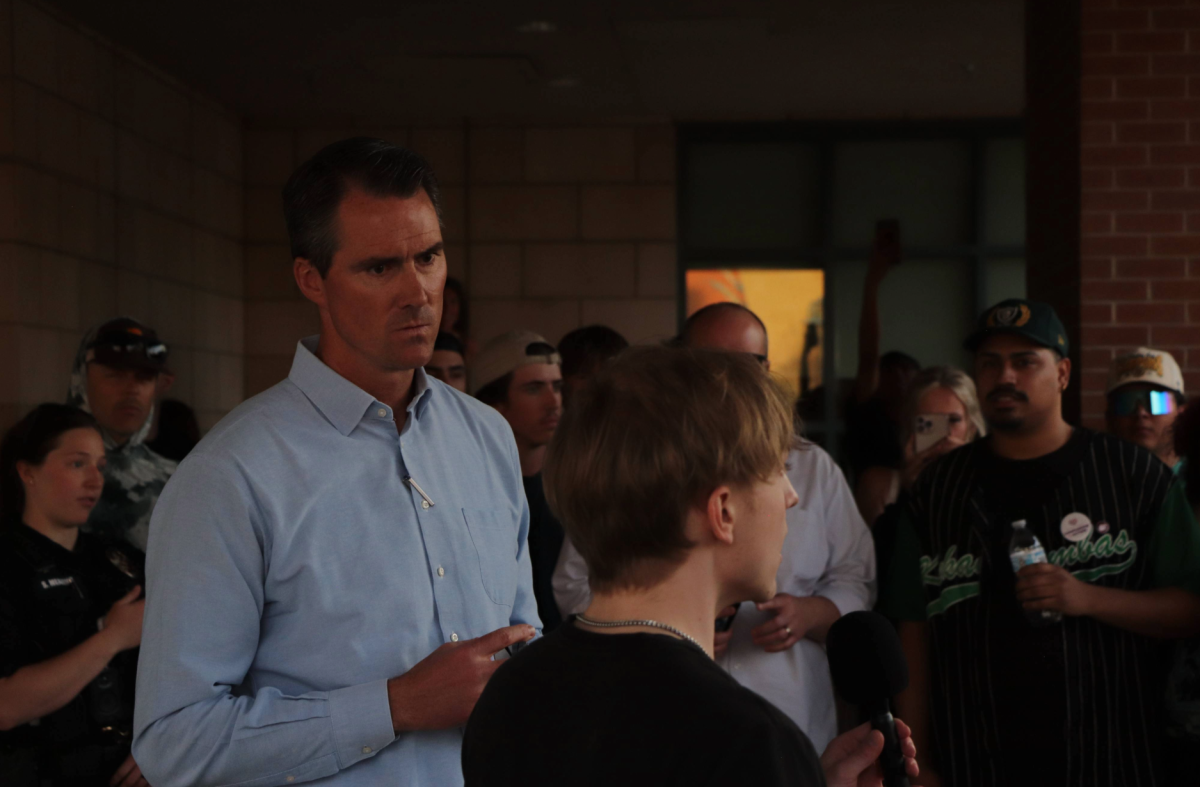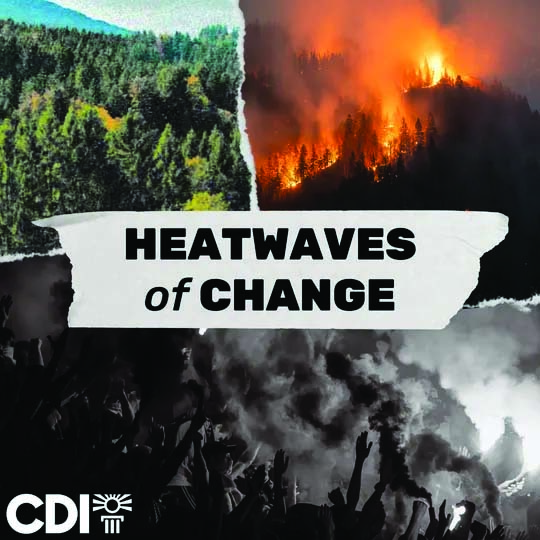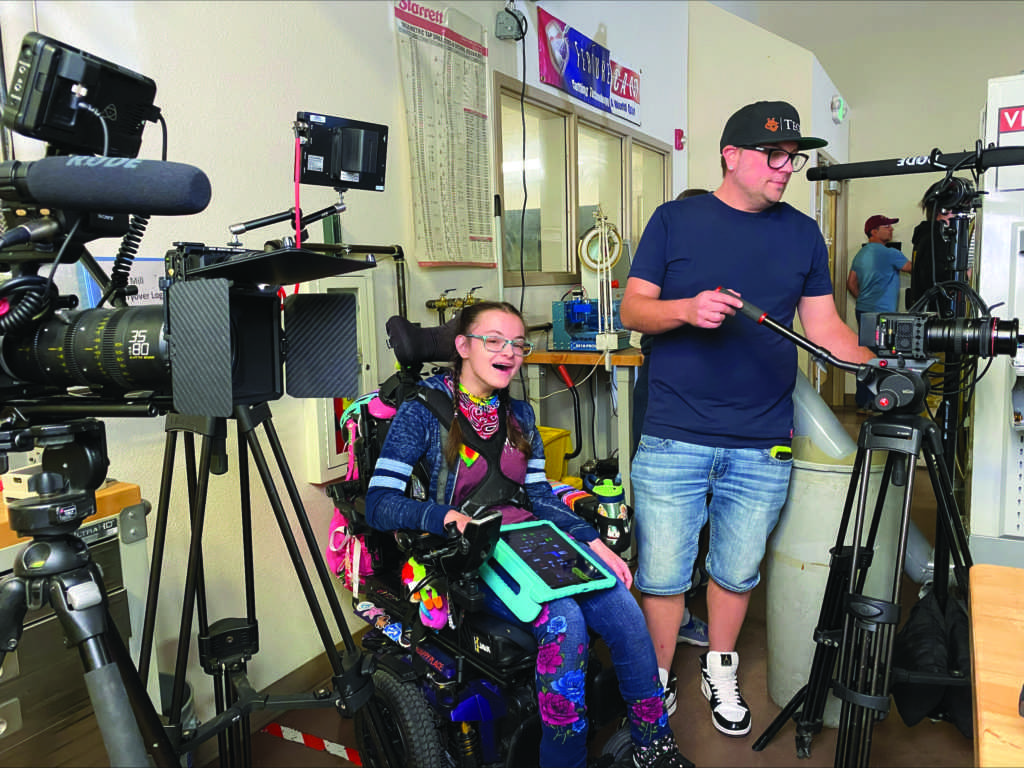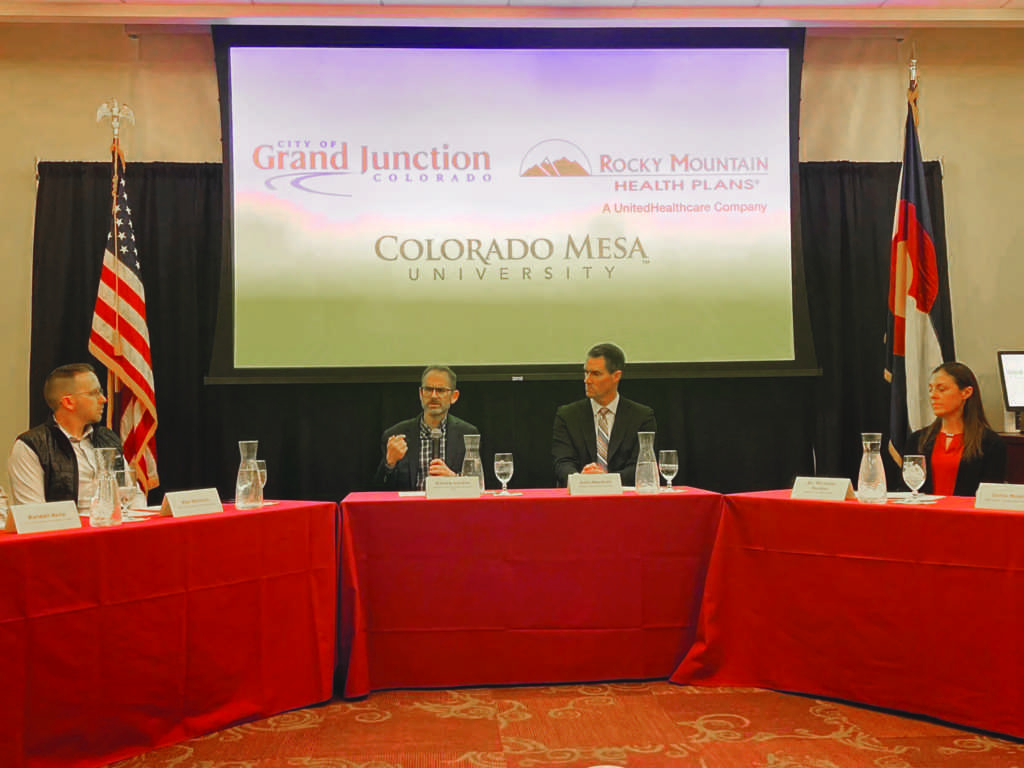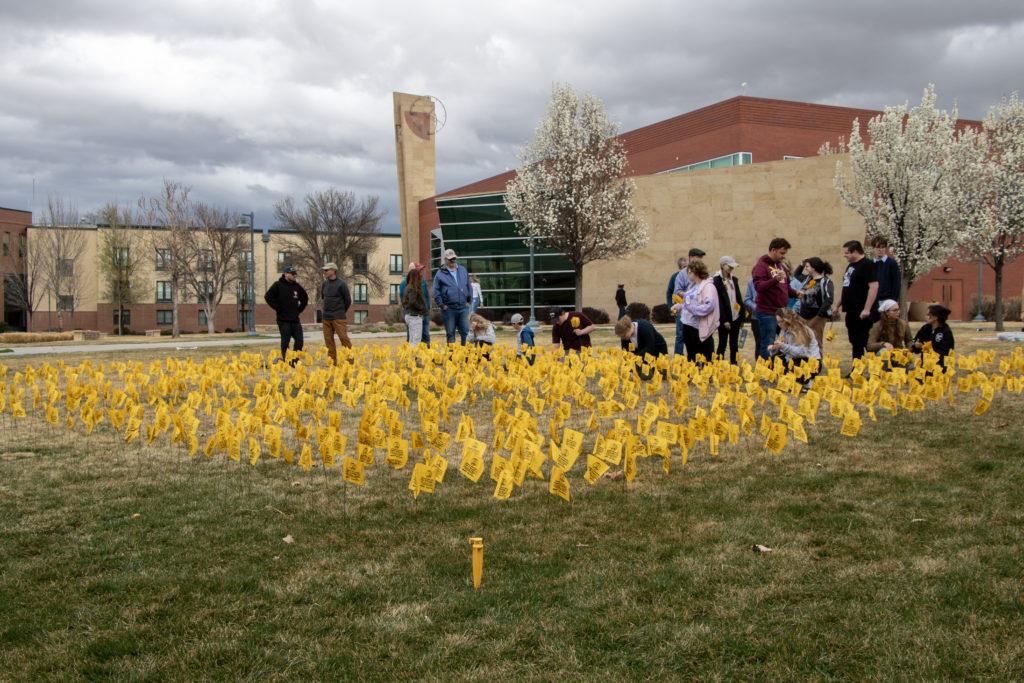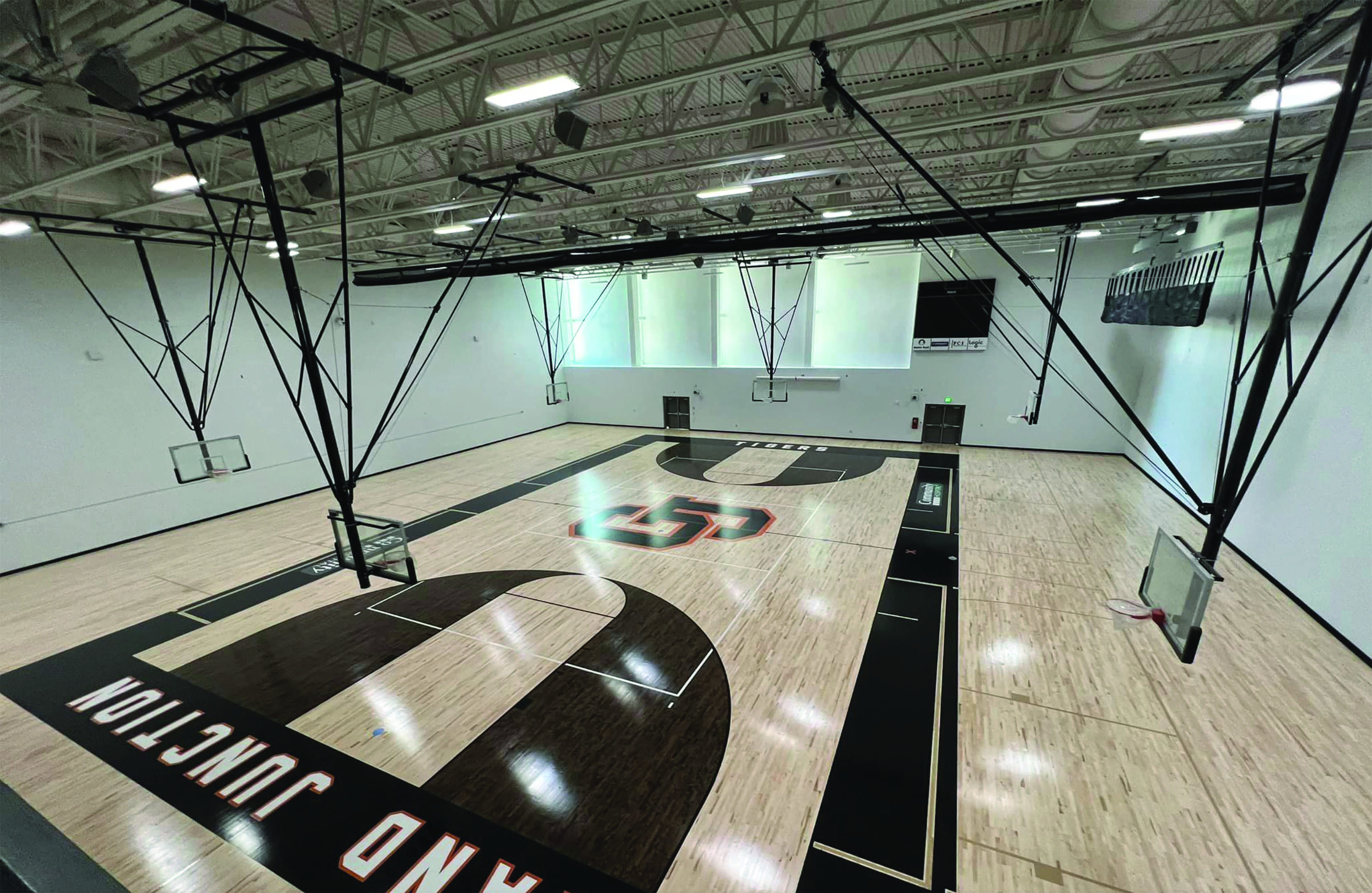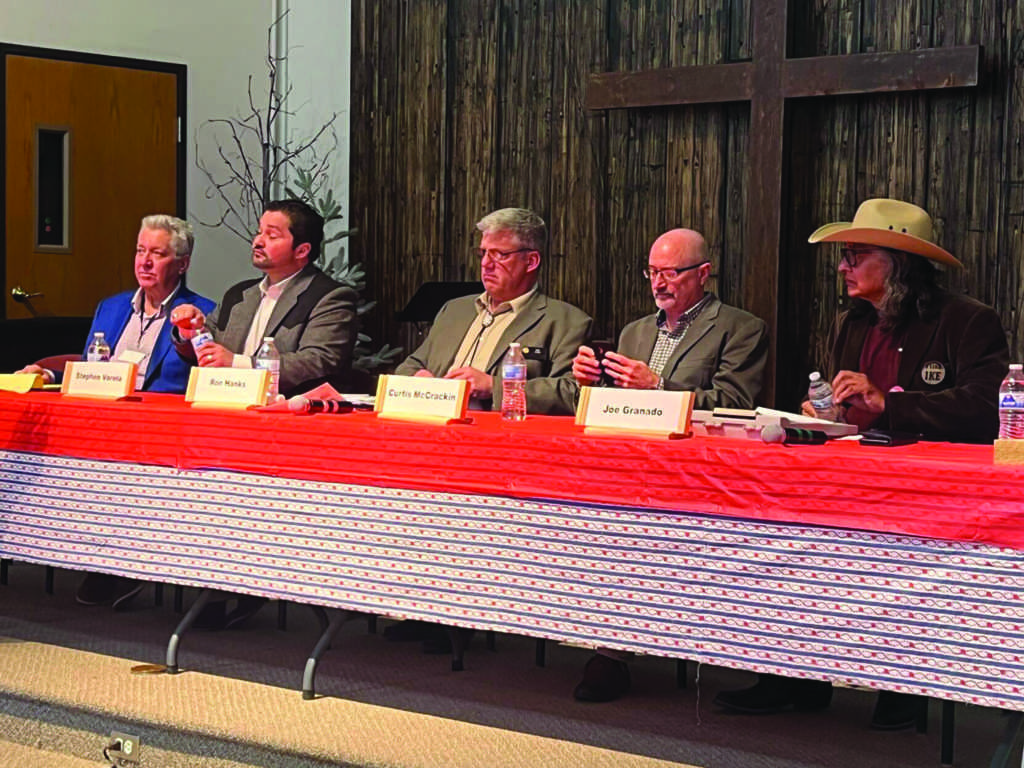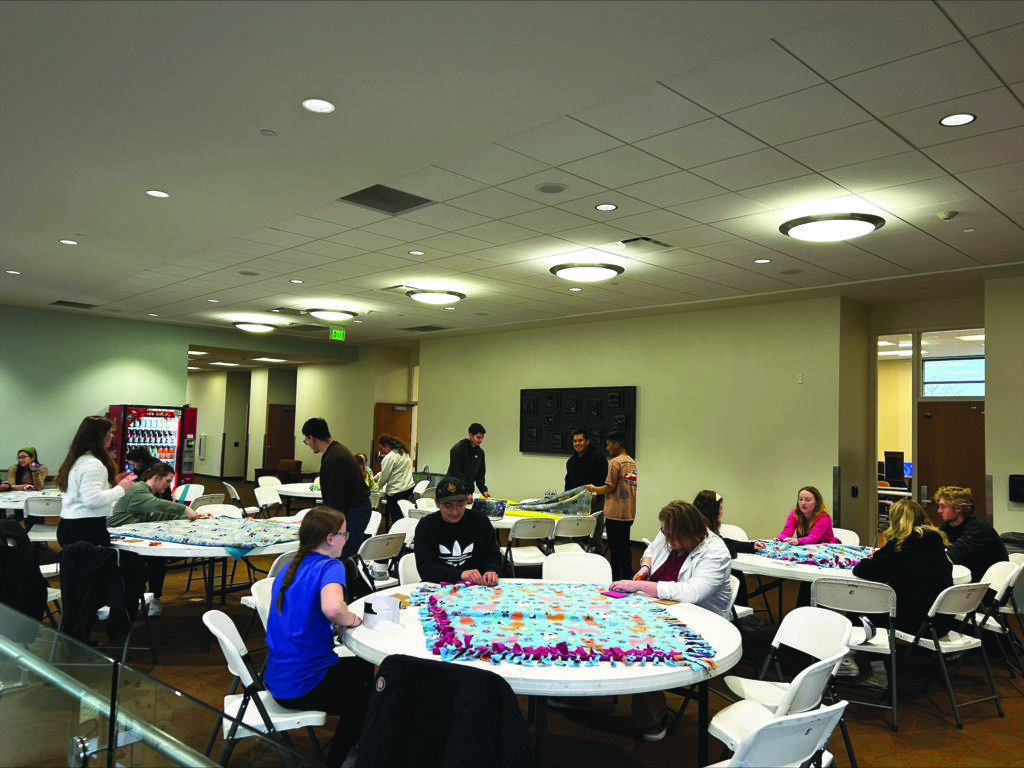On Tuesday, Sept. 27th, Colorado Gov. Jared Polis traveled to the Western Slope. His purpose was to acknowledge environmental sustainability at Colorado Mesa University (CMU) and discuss the institution’s bright, renewable future.
Governor Polis toured the main campus with student government leaders and members of CMU’s Sustainability Council. The focus of this tour was the institution’s geo-exchange cooling and heating systems.
“Sustainability on CMU’s campus has been an up-and-coming thing for many years, but no one has really talked about it,” senior in environmental science and president of Sustainability Council Courtney Moore said. “But finally, we’ve got the opportunity to put our geothermal exchange program out there into the world. I like to refer to it as Colorado’s best-kept secret because it’s such a great program.”
These geo-exchange systems utilize seven well fields on-campus in order to store and harness heat energy for cooling and heating buildings respectively. This network of over 171,000 feet of pipes heats and cools more than 70% of the buildings on campus. Moreover, this system is nearly zero-waste, as all the energy is naturally used and stored.
However, Mavericks do not only take pride in CMU’s geo-exchange systems because of its sustainable nature. In fact, this alternative source of energy has reduced student tuition by over two percent.
“[CMU has] the second lowest tuition in Colorado, and that is because of the dual exchange program,” Moore said.
In spite of all these successes with the geo-exchange systems on-campus, CMU’s administration and students alike have higher aspirations for the program. Many discussions between Mavs and Governor Polis focused on how CMU can become more sustainable.
“We are talking with Gov. Jared Polis because we want to ensure that we are the first school in Colorado to reach 100% renewable energy on campus to heat and cool our buildings,” Moore said. “That will be done through our geothermal exchange program.”
While it may seem easier said than done, Mavericks seem intent on strengthening their environmental legacy in the Western Slope. CMU has tentative plans to connect the geo-exchange systems with all buildings on campus, starting in the Spring 2023 semester.




